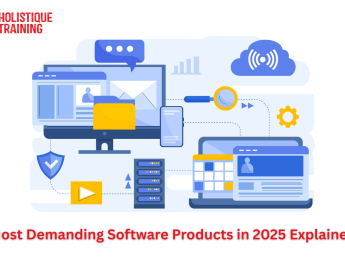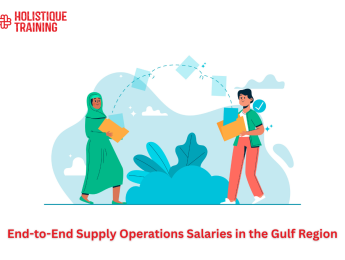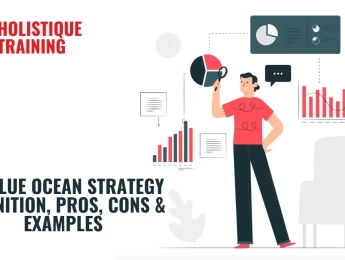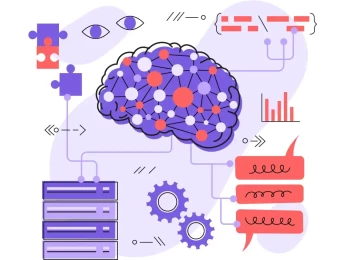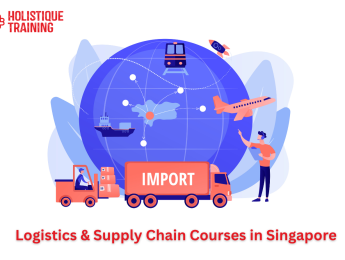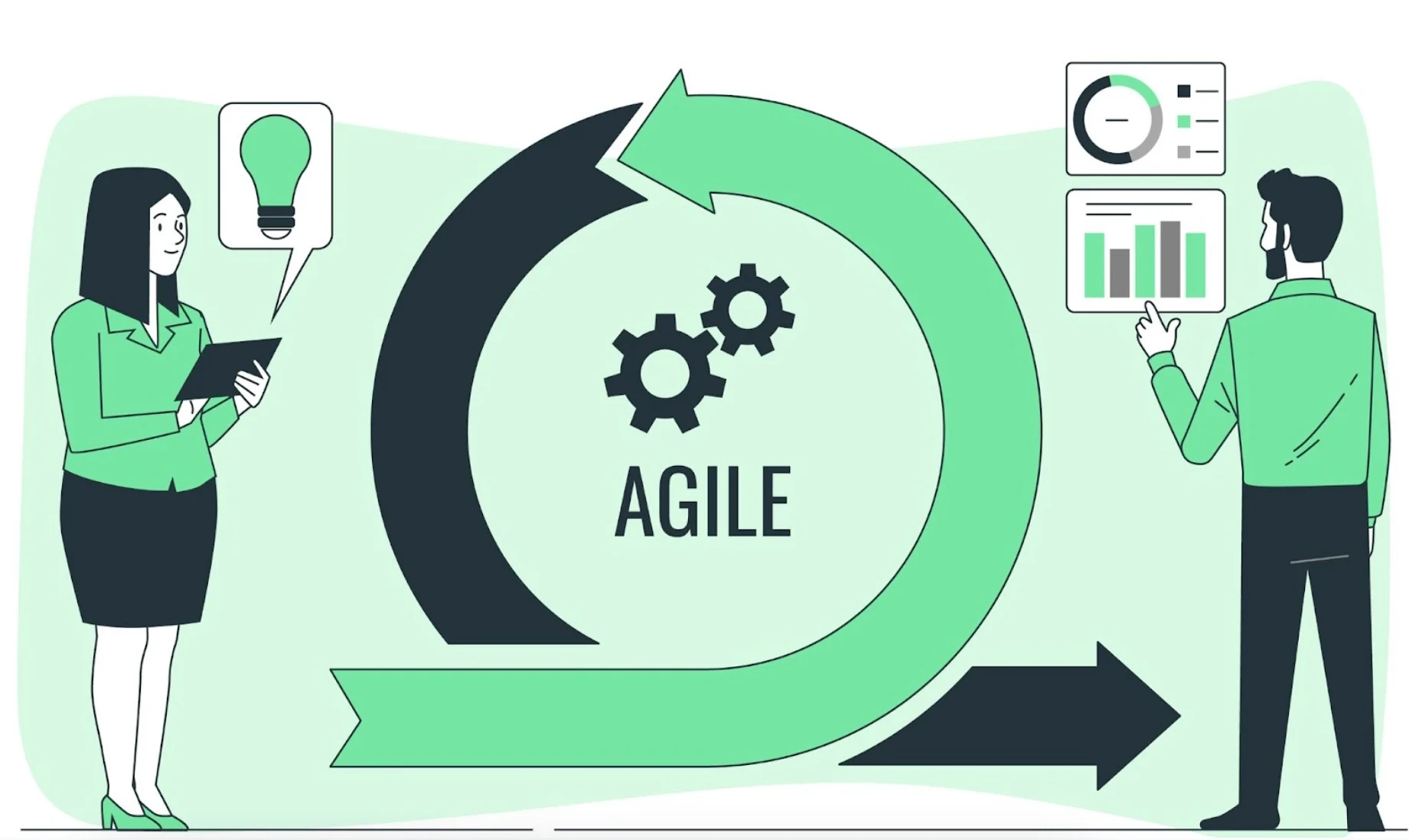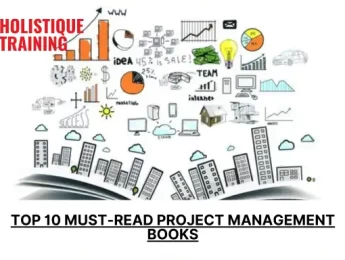aIntroduction
In today's dynamic business landscape, organisations recognise talent's crucial role in driving success and achieving sustainable growth. Talent management has emerged as a strategic imperative for companies seeking to attract, develop, and retain exceptional employees. It encompasses a comprehensive approach to identifying, nurturing, and maximising the potential of individuals within an organisation. This blog post explores the multifaceted concept of talent management, its significance, the underlying processes, and its impact on both individuals and senior leaders.
What Is Talent Management?
Talent management refers to a set of practices and strategies aimed at effectively acquiring, developing, and deploying talented individuals within an organisation. It encompasses a range of activities, including talent acquisition, performance management, learning and development, succession planning, and employee engagement. Talent management focuses on aligning the aspirations, abilities, and potential of employees with the organisation's strategic objectives, ensuring a strong talent pipeline to drive sustainable growth.
Why Is Talent Management Important?
Talent management holds immense importance for organisations of all sizes and industries. Research indicates that companies that excel in talent management are significantly more likely to witness enhanced employee performance. In fact, these top-performing organisations are 3.8 times more inclined to invest in developing their employees to unlock their full potential. Here are several reasons why it has become a critical priority:
Competitive Advantage
In today's highly competitive market, organisations that can attract and retain top talent gain a significant advantage. Talent management enables companies to cultivate a pool of skilled and motivated individuals who can drive innovation, deliver exceptional results, and outperform competitors.
Enhanced Productivity
Focusing on talent development and engagement can enhance employee productivity and performance. Effective talent management practices enable employees to leverage their strengths, develop new skills, and contribute their best efforts to organisational objectives.
Succession Planning
Identifying and nurturing future leaders is vital for long-term success. Talent management facilitates succession planning by identifying high-potential individuals and providing them with the necessary resources and opportunities to grow into leadership positions.
Employee Engagement and Retention
A robust talent management framework fosters a culture of learning, growth, and recognition, leading to higher employee engagement and retention. Employees feel valued and motivated when they perceive that their organisation is invested in their professional development.
The Talent Management Process
The talent management process typically involves the following stages:
1- Talent Identification
Identifying exceptional talent within an organisation goes beyond just assessing skills and competencies. It involves recognising individuals who excel in their current roles and show a strong potential for growth and leadership in the future. This process often requires a keen understanding of the organisation's values and culture, as well as the ability to foresee how an individual's talents can align with the company's long-term goals and strategic vision.
2- Development Planning
Personalised development plans play a pivotal role in nurturing high-potential employees. These plans are not one-size-fits-all; instead, they are tailor-made to address each individual's specific strengths and areas of improvement. Development initiatives, such as mentoring and coaching, are designed to not only enhance technical skills but also foster emotional intelligence, adaptability, and leadership qualities. Through these initiatives, employees are not just trained; they are groomed to become well-rounded professionals capable of navigating complex challenges in the ever-changing business landscape.
3- Performance Management
Performance management in talent management is a continuous, dynamic process rather than a mere annual ritual. Regular feedback and goal setting provide employees with a clear understanding of how their contributions impact the organisation. Constructive criticism and praise, delivered promptly, help individuals stay motivated and engaged. These ongoing discussions facilitate a culture of open communication and mutual respect, encouraging employees to take ownership of their performance and development. Moreover, aligning individual goals with organisational objectives ensures that every effort contributes meaningfully to the company's overall success.
4- Succession Planning
In the realm of talent management, succession planning serves as a strategic initiative rather than just a precautionary measure. It involves a thorough analysis of the organisation's future needs, considering the skills required and the leadership qualities essential for key roles. Succession planning is not limited to the topmost positions; it extends to critical roles across various levels of the organisation. By identifying and nurturing a pipeline of potential leaders, businesses can adapt more swiftly to unforeseen circumstances, ensuring a seamless transition of responsibilities. This forward-thinking approach also fosters a sense of stability and confidence among employees, knowing that the organisation invests in their growth and is well-prepared for the future.
The Talent Management Model
A well-defined talent management model provides a structured framework for organisations to manage their talent effectively. While models may vary, the following elements are typically included:
Attracting Talent
Attracting top talent is not just about showcasing an organisation's perks and benefits; it's about creating a compelling narrative that resonates with potential employees. A robust employer branding strategy goes beyond superficial attractiveness, delving into the company's core values, mission, and unique selling points. Targeted recruitment strategies, such as leveraging social media platforms and professional networks, enable organisations to tap into a diverse pool of candidates. An enticing employee value proposition goes beyond monetary benefits; it encompasses opportunities for professional growth, a supportive work culture, and meaningful work that aligns with an individual's passions and skills.
Developing Talent
Talent development initiatives are not limited to formal training programmes; they encompass a culture of continuous learning and growth. Mentoring and coaching relationships provide individuals with valuable insights, enabling them to navigate challenges and tap into their latent potential. These initiatives foster a growth mindset, encouraging employees to seek opportunities for skill enhancement proactively. Furthermore, talent development efforts are most effective when they align with both individual aspirations and organisational objectives, ensuring a mutually beneficial outcome.
Engaging Talent
Employee engagement initiatives go beyond superficial gestures; they create a workplace where employees feel valued and heard. Inclusive work environments foster a sense of belonging, where diverse perspectives are welcomed and celebrated. Motivation stems from recognising and appreciating employees' contributions, acknowledging their achievements, and providing constructive feedback. Moreover, fostering a culture of open communication, where employees can voice their ideas and concerns without fear of reprisal, enhances engagement levels and strengthens the bond between the employees and the organisation.
Retaining Talent
Retaining talent is not merely about offering competitive salaries; it involves creating a conducive work environment where employees can professionally and personally thrive. Recognising and rewarding high-performing individuals through timely promotions, bonuses, and non-monetary incentives instil a sense of loyalty and job satisfaction. Additionally, providing clear career growth paths and encouraging employees to balance their work and personal lives fosters a positive work-life balance. Offering flexible work arrangements, comprehensive benefits, and support for skill development outside the immediate job role further enhances retention efforts, ensuring that employees remain committed to the organisation in the long run.
Succession Planning
Succession planning is not a standalone activity but an integral part of the organisation's strategic planning process. Identifying potential successors involves assessing not only technical competencies but also leadership qualities, adaptability, and emotional intelligence. Organisations must invest in the development of these individuals, providing them with opportunities to broaden their horizons and prepare for future leadership roles. By creating a talent pipeline that is agile and responsive to changing market demands, organisations can navigate leadership transitions smoothly, ensuring continuity and stability even in the face of unforeseen challenges.
How Can Organisations Help Talent Learn and Grow?
Organisations play a vital role in helping talent learn and grow. Here are some effective approaches:
Learning and Development Programmes
Organisations can enhance talent learning and growth by offering diverse and tailored learning and development programmes. Workshops, seminars, and online courses provide structured learning experiences, while coaching sessions offer personalised guidance. These programmes focus on technical skills and emphasise soft skills, leadership abilities, and adaptability, preparing individuals for a rapidly changing business landscape. By investing in continuous education, organisations empower their talent to stay abreast of industry trends and emerging technologies, ensuring their skills remain relevant and competitive.
Mentoring and Coaching
Assigning mentors and coaches to high-potential individuals is a valuable investment in their professional development. Mentors provide wisdom based on their experiences, helping mentees navigate challenges and make informed decisions. Coaches offer specialised guidance, focusing on specific skills or areas that require improvement. These relationships foster a sense of belonging and trust, enabling individuals to explore their potential in a supportive environment. Moreover, mentorship and coaching encourage continuous learning and self-reflection, fostering a growth mindset that is essential for long-term career advancement.
Job Rotation and Stretch Assignments
Encouraging employees to take on challenging assignments and experience different organisational roles can significantly contribute to their growth. Job rotations and stretch assignments allow individuals to develop new skills, expand their knowledge base, and gain insights into various aspects of the business. Employees learn to adapt to diverse work environments by stepping out of their comfort zones, enhancing their problem-solving abilities and increasing their versatility. These experiences enrich their professional skills and boost their confidence, making them well-rounded professionals capable of handling multifaceted challenges.
Continuous Feedback and Performance Management
Regular feedback sessions and performance reviews are essential to a supportive learning environment. Timely and constructive feedback helps individuals understand their strengths and areas for improvement, enabling them to set realistic goals and track their progress. Ongoing performance discussions facilitate open communication between employees and managers, fostering a culture of accountability and mutual respect. By aligning individual objectives with organisational goals, continuous feedback mechanisms ensure that talent development efforts are focused, relevant, and conducive to both personal and organisational growth.
What Does Talent Management Mean to Senior Leaders?
Senior leaders recognise the critical role of talent management in achieving strategic objectives and long-term success. Talent management holds specific significance for senior leaders in the following ways:
Leadership Pipeline
For senior leaders, talent management is synonymous with building a robust leadership pipeline. They understand that identifying and nurturing future leaders is not just a necessity but a strategic imperative. By investing in talent management initiatives, senior leaders ensure a continuous influx of skilled and capable individuals who can step into key roles as the organisation evolves. This proactive approach safeguards the organisation's long-term stability and resilience, providing a steady succession plan that can adapt to the changing business landscape demands.
Organisational Agility
Senior leaders recognise that organisational agility is pivotal in today's dynamic business environment. Talent management plays a pivotal role in fostering this agility by cultivating a workforce that is not only skilled but also adaptable. By nurturing employees who can quickly learn new skills and adapt to different roles, organisations become agile entities capable of responding swiftly to market shifts. This adaptability allows senior leaders to capitalise on emerging opportunities and navigate challenges effectively, ensuring that the organisation remains competitive and innovative.
Employee Engagement and Retention
Senior leaders understand the direct link between employee engagement, talent management, and organisational success. They recognise that engaged employees are more committed, motivated, and likely to contribute meaningfully to the company's objectives. By prioritising talent management, senior leaders create a work environment where employees feel valued and supported in their professional growth. This, in turn, fosters a sense of loyalty and belonging, leading to higher retention rates and reduced turnover costs. Senior leaders invest in talent management initiatives to create a workplace where employees are retained and inspired to excel.
Cultural Transformation
Talent management initiatives serve as catalysts for cultural transformation within organisations. Senior leaders understand that a talent-centric approach promotes a culture of continuous learning, collaboration, and innovation. By embracing talent management strategies, senior leaders set the tone for a workplace where employees are encouraged to fearlessly acquire new skills, share knowledge, and contribute ideas. This culture shift paves the way for innovation and excellence, creating a positive work environment where employees are motivated to explore their full potential. Senior leaders champion talent management to drive this cultural transformation, fostering a workplace where creativity and productivity thrive.
The Future of HR Talent Management
As organisations evolve in the digital age, so must talent management practices. The field of HR talent management is experiencing a transformation driven by technological advancements, changing workforce dynamics, and evolving business needs. In fact, according to Clear Company, an overwhelming majority of business leaders, approximately 72%, have expressed their commitment to investing in technology as part of their strategies to attract and retain employees. Additionally, it was found that nearly 80% of small businesses have either already implemented HR software or have plans to do so within the next two years. Let’s delve into the future of HR talent management, and highlight emerging trends and innovative strategies that will shape the way organisations attract, develop, and retain talent:
Embracing Technology
Technology is revolutionising the way HR talent management functions. Artificial intelligence (AI)–which we will talk about in detail in a minute–machine learning, and data analytics enable HR professionals to make data-driven decisions, enhance talent acquisition processes, and optimise talent development initiatives. Automated systems can streamline administrative tasks, allowing HR teams to focus more on strategic talent management activities.
Agile Talent Management
The rise of the gig economy and remote work has necessitated a shift towards agile talent management. Organisations increasingly embrace flexible work arrangements, including freelancers, contractors, and remote workers. HR talent management must adapt to effectively manage and integrate diverse talent pools, ensuring a cohesive and productive workforce.
Personalised Learning and Development
The future of talent management lies in personalised learning and development initiatives. Rather than a one-size-fits-all approach, organisations are leveraging technology and data to provide customised learning experiences. AI-powered learning platforms can deliver targeted training content, adaptive assessments, and individualised development plans, catering to employees' unique needs and preferences.
Continuous Performance Management
The traditional annual performance review is being replaced by continuous performance management. Organisations are shifting towards ongoing feedback and coaching conversations, enabling real-time performance discussions and adjustments. This approach fosters agility, engagement, and growth, empowering employees to improve their skills and contribute to organisational success continuously.
Talent Analytics and Predictive Insights
Data analytics is playing an increasingly vital role in talent management. HR professionals can leverage talent analytics to gain insights into workforce trends, identify skill gaps, predict future talent needs, and make informed decisions. Predictive analytics can assist in succession planning, talent retention strategies, and optimising talent acquisition efforts.
Employer Branding and Employee Experience
Employer branding and employee experience has become crucial for attracting and retaining top talent. Organisations will have to invest in creating strong employer brands, communicating their values, culture, and commitment to employee growth and development. A positive employee experience, encompassing a supportive work environment, work-life balance, and opportunities for advancement, will be a key differentiator.
The Role of Artificial Intelligence (AI) in Talent Management
Artificial Intelligence (AI) is revolutionising various aspects of talent management, providing organisations with innovative tools and capabilities to optimise their talent acquisition, development, and retention efforts.
AI in Talent Acquisition
AI has transformed the talent acquisition process, enabling organisations to streamline candidate sourcing, assessment, and selection. A study conducted by Deloitte, as cited by ZipDo, reveals that 38% of businesses have integrated artificial intelligence into their talent acquisition processes. AI-powered tools can scan resumes, analyse candidate profiles, and identify top candidates based on predefined criteria. Automated chatbots and virtual assistants can engage with applicants, answer frequently asked questions, and provide initial screening, saving time and resources for HR professionals.
AI for Skill and Culture Fit Assessment
AI algorithms can assess candidates' skills and cultural fit more accurately and efficiently. Through natural language processing and machine learning, AI tools can analyse candidate responses, video interviews, and social media presence to gauge their suitability for specific roles and organisational culture. This helps ensure a better match between candidates and job requirements, leading to improved hiring decisions.
AI-Driven Learning and Development
As mentioned earlier, AI-powered learning platforms can personalise and enhance employee development. By analysing individual learning patterns, preferences, and performance data, AI algorithms can recommend relevant training content, suggest learning pathways, and provide real-time feedback. This personalised approach enhances the effectiveness of learning initiatives and helps employees acquire new skills and knowledge efficiently.
AI for Performance Management
AI can augment performance management processes by providing data-driven insights. AI algorithms can analyse employee performance metrics, feedback, and other relevant data sources to identify patterns, trends, and areas for improvement. This enables managers to provide targeted feedback, set meaningful goals, and make informed decisions regarding promotions, compensation, and development opportunities.
Metric Description | Key Performance Indicator (KPI) | Measurement Frequency |
Employee Engagement | Employee Satisfaction and Retention Rates | Quarterly |
Leadership Development | Succession Plan Execution and Leadership Training | Annually |
Recruitment Efficiency | Time-to-Fill and Cost-per-Hire | Monthly |
Performance Management | Performance Appraisal Completion and Feedback | Semi-annually |
Skills Development | Skills Improvement and Training Participation | Monthly |
Table 1: Key metrics for talent management
Ethical Considerations and Bias Mitigation
While AI offers significant benefits, addressing ethical considerations and potential biases is crucial. AI algorithms are trained on historical data, which may contain biases and perpetuate systemic inequalities. HR professionals must ensure fairness, transparency, and accountability in the use of AI tools, regularly monitoring and auditing the algorithms to mitigate bias and ensure a diverse and inclusive talent management process.
Conclusion
In today's fiercely competitive business environment, talent management has become an organisation's strategic imperative. By effectively acquiring, developing, and deploying talent, companies can gain a competitive advantage, enhance productivity, and foster a culture of continuous learning and growth. Talent management is a holistic process encompassing talent identification, development planning, performance management, and succession planning. Organisations can help talent learn and grow through various approaches such as learning and development programmes, mentoring, job rotations, and continuous feedback. For senior leaders, talent management holds particular importance as it ensures a robust leadership pipeline, organisational agility, employee engagement, and cultural transformation. By embracing talent management as a core business strategy, organisations unlock the potential of their workforce and pave the way for sustained success.
Finally, our course, 'An Introduction to Human Resources,' offers a transformative journey into the heart of effective talent management strategies. Learn the art of acquiring, nurturing, and leveraging talent to propel your organisation to new heights of success. Enrol now and empower your team with the knowledge and skills needed to thrive in the competitive business arena, ensuring your company's enduring growth and prosperity."







